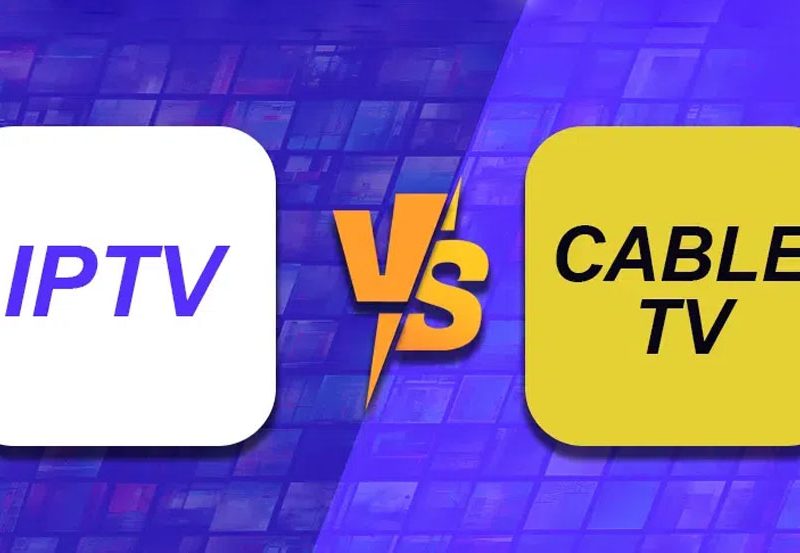IPTV, or Internet Protocol Television, is a technology that delivers television services over an internet protocol network instead of traditional cable or satellite means. This technology allows for the delivery of television content in a more efficient and cost-effective manner, making it an attractive option for emergency preparedness and response. In times of crisis, traditional television and communication networks may be disrupted, making it difficult for emergency responders to disseminate critical information to the public.
IPTV can play a crucial role in ensuring that emergency information reaches the public in a timely and efficient manner. IPTV’s role in emergency preparedness is to provide a reliable and resilient means of communication during times of crisis. By leveraging IPTV technology, emergency responders can broadcast important information such as evacuation notices, shelter locations, and safety instructions to the public.
This can help ensure that individuals are well-informed and can take appropriate action to protect themselves and their families during emergencies. Additionally, IPTV can also be used to provide real-time updates on the status of the emergency, helping to keep the public informed and alleviate panic or confusion. Overall, IPTV serves as a critical tool for emergency preparedness, ensuring that vital information reaches the public when it is needed most.
Key Takeaways
- IPTV plays a crucial role in emergency preparedness by providing real-time information and communication during crises.
- IPTV can be leveraged for disaster response and recovery by delivering emergency alerts, updates, and instructions to affected populations.
- IPTV has a significant impact on healthcare services during emergencies, enabling remote consultations, patient monitoring, and medical education.
- Government initiatives are utilizing IPTV for emergency communication, ensuring efficient dissemination of critical information to the public.
- Businesses can ensure continuity in crisis situations by using IPTV for internal communication, employee training, and customer outreach.
Leveraging IPTV for Disaster Response and Recovery
Disaster Response and Coordination
Through IPTV, emergency responders can broadcast important information such as emergency contact numbers, relief distribution points, and updates on recovery efforts. This can help ensure that affected communities have access to the information they need to receive assistance and begin the process of rebuilding.
Empowering Communities through Education
Furthermore, rabid IPTV can also be used to provide educational content on disaster preparedness and recovery, helping to empower communities to better prepare for future emergencies. By leveraging IPTV technology, organizations can create and broadcast educational programs that provide valuable information on topics such as emergency planning, first aid, and disaster recovery resources.
A Powerful Tool for Disaster Response and Recovery
This can help ensure that communities are better equipped to respond to future emergencies and mitigate the impact of disasters. Overall, IPTV serves as a powerful tool for disaster response and recovery, providing a means of communication and education that is essential for supporting affected communities.
IPTV’s Impact on Healthcare Services during Emergencies
During emergencies, access to healthcare services is critical for ensuring the well-being of affected individuals. IPTV technology can have a significant impact on healthcare services during emergencies by providing a platform for healthcare providers to deliver telemedicine services and communicate with patients. Through IPTV, healthcare providers can conduct virtual consultations, monitor patient conditions remotely, and provide medical advice to individuals in need.
This can help ensure that individuals have access to essential healthcare services even when traditional healthcare facilities may be inaccessible or overwhelmed during emergencies. Additionally, IPTV can also be used to deliver educational content on healthcare topics such as first aid, disease prevention, and mental health support. By leveraging IPTV technology, healthcare organizations can create and broadcast educational programs that provide valuable information to the public on how to stay healthy and safe during emergencies.
This can help empower individuals to take proactive measures to protect their health and well-being during times of crisis. Overall, Gen IPTV has the potential to significantly impact healthcare services during emergencies by providing a means of delivering telemedicine services and educational content that is essential for supporting the health needs of affected communities.
Government Initiatives and IPTV for Emergency Communication
Governments play a crucial role in ensuring that the public receives timely and accurate information during emergencies. IPTV technology can be leveraged by governments as a means of communication to disseminate important information to the public and coordinate emergency response efforts. Through IPTV, government agencies can broadcast emergency alerts, evacuation notices, and safety instructions to the public, helping to ensure that individuals are well-informed and can take appropriate action to protect themselves during emergencies.
Furthermore, governments can also use IPTV to provide updates on the status of the emergency and share information on relief efforts and support services available to affected communities. By leveraging IPTV technology, governments can ensure that the public has access to the information they need to receive assistance and stay informed about the ongoing situation. Additionally, governments can also use IPTV to deliver educational content on emergency preparedness and response, helping to empower individuals with the knowledge they need to stay safe during emergencies.
Overall, government initiatives leveraging IPTV for emergency communication are essential for ensuring that vital information reaches the public when it is needed most.
Business Continuity and IPTV in Crisis Situations
Business continuity is essential for organizations to maintain operations and support their employees and customers during crises. IPTV technology can play a crucial role in supporting business continuity by providing a means of communication and information dissemination during crisis situations. Through IPTV, organizations can broadcast important updates on the status of the crisis, safety instructions for employees, and information on business continuity plans.
This can help ensure that employees are well-informed and can take appropriate action to protect themselves and support business operations during emergencies. Furthermore, organizations can also use IPTV to provide training and educational content on topics such as crisis management, remote work best practices, and employee support resources. By leveraging IPTV technology, organizations can create and broadcast educational programs that provide valuable information to employees on how to navigate crisis situations and maintain productivity.
This can help ensure that organizations are better equipped to support their employees and maintain operations during emergencies. Overall, IPTV serves as a critical tool for supporting business continuity during crises, providing a means of communication and education that is essential for navigating challenging circumstances.
Enhancing Public Safety with IPTV Technology
Real-Time Information Dissemination
Through IPTV, public safety agencies can broadcast important information such as emergency alerts, evacuation notices, and safety instructions to the public in real-time. This can help ensure that individuals are well-informed and can take appropriate action to protect themselves and their families during emergencies.
Supporting Affected Communities
Additionally, IPTV can also be used to provide updates on the status of the emergency and share information on support services available to affected communities. Furthermore, public safety agencies can leverage IPTV technology to provide educational content on topics such as disaster preparedness, crime prevention, and community safety initiatives.
Empowering Communities
By creating and broadcasting educational programs through IPTV, public safety agencies can empower individuals with the knowledge they need to stay safe and contribute to community safety efforts. This can help ensure that communities are better equipped to respond to emergencies and mitigate potential risks. Overall, IPTV technology has the potential to significantly enhance public safety measures by providing a means of communication and education that is essential for supporting community safety.
Future Trends in IPTV for Emergency Preparedness and Response
As technology continues to advance, there are several future trends in IPTV that have the potential to further enhance emergency preparedness and response efforts. One trend is the integration of artificial intelligence (AI) into IPTV systems to improve content delivery and personalization. AI-powered IPTV systems can analyze user preferences and behavior to deliver personalized emergency alerts and information, ensuring that individuals receive relevant information in a timely manner.
Another future trend is the use of augmented reality (AR) and virtual reality (VR) technologies in IPTV for immersive emergency training simulations. These technologies can provide realistic training scenarios for emergency responders and individuals, helping them better prepare for crisis situations. Additionally, advancements in IoT (Internet of Things) technology will enable IPTV systems to integrate with smart devices and sensors for real-time monitoring of emergency situations and automated response actions.
Furthermore, advancements in 5G technology will enhance the capabilities of IPTV for delivering high-quality video content and real-time communication during emergencies. The increased bandwidth and low latency of 5G networks will enable more reliable and responsive IPTV services, ensuring that critical information reaches the public without delay. In conclusion, IPTV technology plays a crucial role in emergency preparedness and response efforts by providing a reliable means of communication and information dissemination during crises.
From supporting healthcare services to enhancing public safety measures, IPTV has the potential to significantly impact how communities prepare for and respond to emergencies. As technology continues to evolve, future trends in IPTV will further enhance its capabilities for supporting emergency preparedness and response efforts, ensuring that vital information reaches the public when it is needed most.
IPTV and Emergency Preparedness: Staying Safe in Crisis Situations is an important topic, especially in today’s world. It’s crucial to have access to reliable information and communication during emergencies. One related article that provides valuable insights into this topic is Premium IPTV Service. This article discusses the benefits of using IPTV for emergency preparedness and staying informed during crisis situations. It highlights the importance of having a reliable IPTV service to access news, updates, and emergency alerts when traditional communication channels may be disrupted. This article offers valuable information for individuals and communities looking to enhance their emergency preparedness plans.




